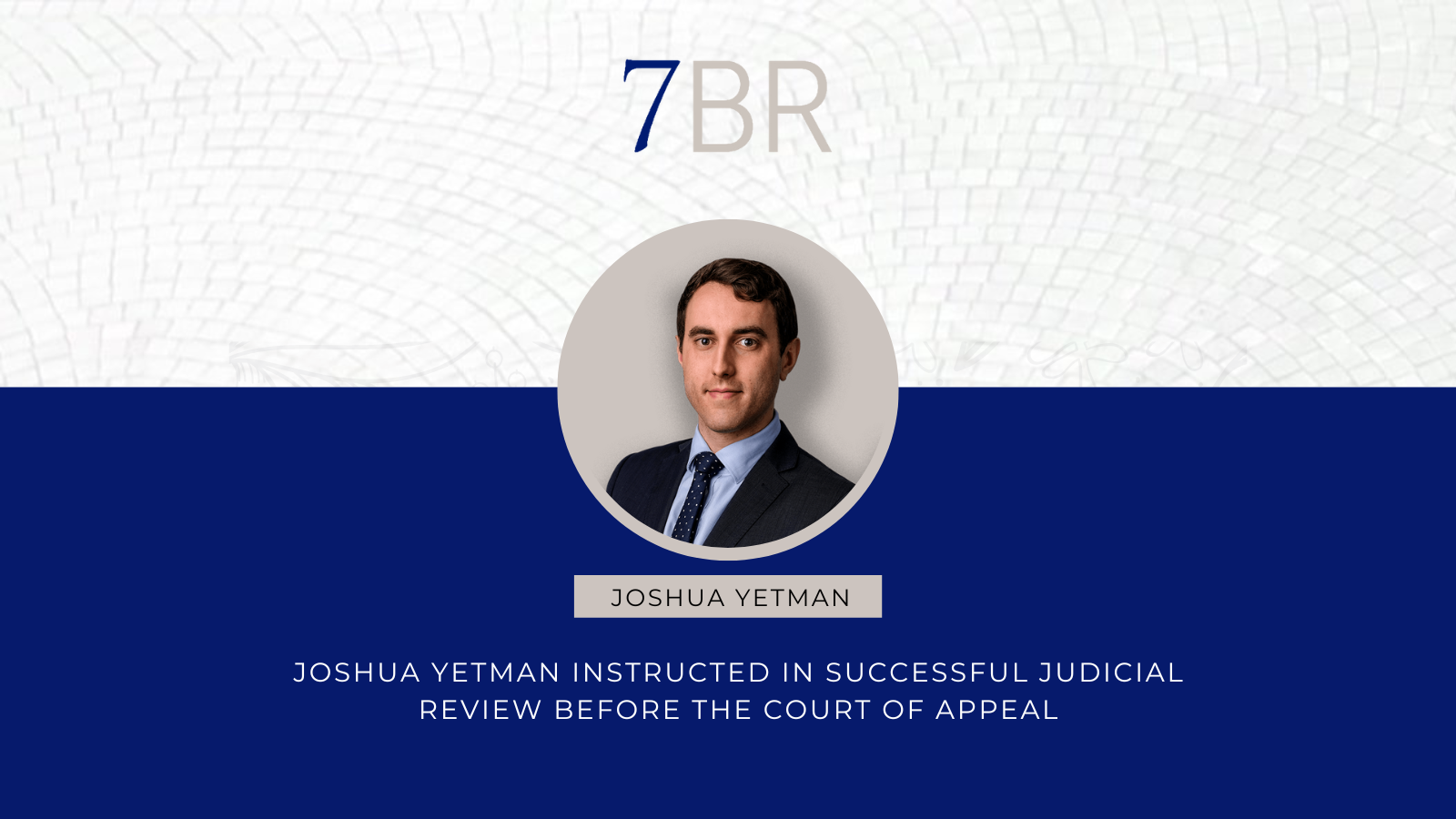
Court of Appeal holds victim of non-touching sexual abuse is eligible for criminal injuries compensation.
In RN v CICA [2023] EWCA Civ 882 the Court of Appeal has overturned decisions of the Upper and First Tier Tribunals, to hold that a victim of sexual abuse that did not involve touching is a victim of a crime of violence under the Criminal Injuries Compensation Scheme 2012 (CICS). The case is now the lead authority on the definition of a crime of violence under the 2012 Scheme.
In 2014, when he was aged 12, RN met his abuser, who was working at a gaming club he attended. RN added the abuser as a friend on Facebook and they began messaging. The abuser initially posed online as a girl of 14, and embarked on a campaign of serious online sexual grooming and abuse. When RN realised that identity was false, he became scared. The abuser knew where RN lived and where he went to school. The abuser suggested he could be hiding in a bush near his house, and that he should not tell anyone about the messaging. RN felt threatened. RN thought that if he did tell someone his abuser would get to him and harm him or his family in some way. No touching took place at any stage.
After RN’s family discovered the abuse, the police investigated. The abuser was prosecuted and convicted of attempting to cause or incite a child to engage in sexual activity, and attempting to meet a boy under 16 following sexual grooming. He was sentenced to 2 years and 4 months imprisonment, with a 10-year Sexual Harm Prevention Order.
RN was traumatised and suffered life changing mental injuries as a result of the abuse.
RN applied to the Criminal Injuries Compensation Authority (CICA) for compensation for his injury. The CICS restricts awards to persons who have suffered a “crime of violence”. The 2012 version of the Scheme was the first to provide a definition of a crime of violence. Paragraph 2(1) of Annex B to the Scheme provides the following amount to crimes of violence:
- a physical attack;
- any other act or omission of a violent nature which causes physical injury to a person;
- a threat against a person, causing fear of immediate violence in circumstances which would cause a person of reasonable firmness to be put in such fear;
- a sexual assault to which a person did not in fact consent…
The CICA rejected RN’s initial application for compensation in November 2017, on the basis that he had not been physically injured and that he was not placed in fear of immediate harm.
That reasoning was in essence upheld by the First Tier and Upper Tribunals. They held that RN had not been subject to a criminal assault, a sexual assault, or an act or omission of a violent nature that caused him physical (as opposed to mental) injury.
In overturning those decisions, the Court of Appeal held RN:
- Was subject to a crime of violence under 2(1)(c). The paragraph is to be interpreted in line with the criminal law of common assault. The Court applied the well-known criminal cases of R v Ireland [1998] AC 147, and R v Constanza [1997] 2 CR App R 492. There is no requirement under the common law that there be no intervening physical space or lapse of time between a threat and a fear of immediate violence. The requirement of fear of immediate violence is a fear of violence at some time not excluding the immediate future.
- Was not subject to a sexual assault within the meaning of 2(1)(d). Parliament had legislated so as to align the meaning of 2(1)(d) with the definition of a sexual assault under s.3 of the Sexual Offences Act 2003, which requires touching.
- It was unnecessary for the purposes of the appeal to determine whether the meaning of “physical injury” under 2(1)(b) includes psychiatric injury. The Upper Tribunal held psychiatric injury alone was excluded. Nicola Davies LJ, who gave the sole judgment in the Court of Appeal, stated she had found resolution of that issue problematic, and that there were force in the arguments either way on behalf of the CICA and RN, but “[r]esolution of this difficult issue should await a case where it is determinative of a claim.”
The Court of Appeal’s judgment is of particular significance to victims of modern forms of violent crime which are likely to cause psychiatric injury, but which do not necessarily involve or require touching. Those include victims of sexual abuse and grooming, but also domestic violence of a coercive and controlling nature, and victims of human trafficking and modern slavery (the Anti-Trafficking and Labour Exploitation Unit were given permission to intervene by written submissions in the Court of Appeal). The judgment provides welcome clarification that the case law that widened the definition of criminal common law assault in the late 1990s applies to the threats gateway in the Scheme.
With regard to the “act or omission of a violent nature” gateway, the Court held there was force in the argument that to exclude psychiatric injury from the definition of “physical injury” would produce absurd results, and that criminal and personal injury law had long rejected such a crude distinction. If paragraph 2(1)(b) were read to include psychiatric injury, that would make a significantly wider cohort of victims of violent crime eligible for compensation under the Scheme. Resolution of that issue will now fall to be determined in a different case.
RN was represented by Chris Buttler KC, James Robottom, and Joshua Yetman of 7BR, instructed by Lisa Richardson and Alicia Percy at Irwin Mitchell LLP.
The judgement is available here and here.
For help or advice please call +44 (0)20 7242 3555 or complete the form below
A member of the Clerking team will help you resolve your request.
Frequently asked questions
Do you have an out of hours number?
Yes, please call Chambers mainline number +44 (0)20 7242 3555 and you will be directed to the out of hours phone lines.
How can I find out whether 7BR can take my case?
As a direct access client, please visit our direct access page and complete the initial form, a member of the clerking team will then be in touch to discuss the next steps.
Will my barrister deal with all the correspondence?
Some barristers have the ability to “conduct litigation” for direct access clients. Our clerks will be able to assist you as to which of our members are trained and accredited to do so.
How do I instruct a barrister?
Please visit our direct access page for the initial steps on instructing a barrister, or contact our clerks on +44 (0)20 7242 3555.



